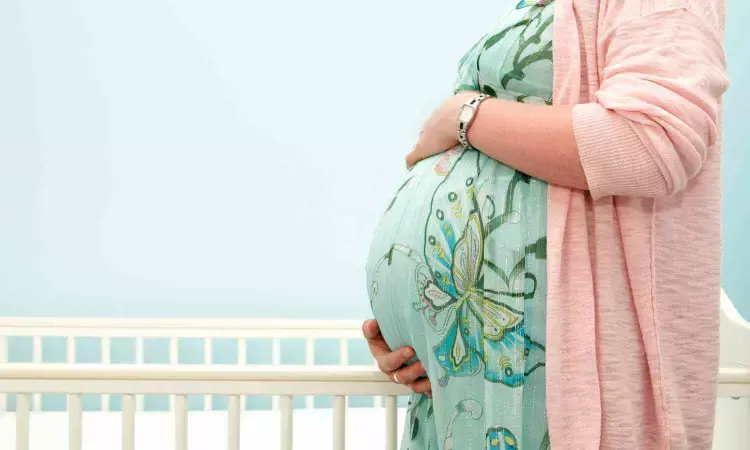- Home
- Medical news & Guidelines
- Anesthesiology
- Cardiology and CTVS
- Critical Care
- Dentistry
- Dermatology
- Diabetes and Endocrinology
- ENT
- Gastroenterology
- Medicine
- Nephrology
- Neurology
- Obstretics-Gynaecology
- Oncology
- Ophthalmology
- Orthopaedics
- Pediatrics-Neonatology
- Psychiatry
- Pulmonology
- Radiology
- Surgery
- Urology
- Laboratory Medicine
- Diet
- Nursing
- Paramedical
- Physiotherapy
- Health news
- Fact Check
- Bone Health Fact Check
- Brain Health Fact Check
- Cancer Related Fact Check
- Child Care Fact Check
- Dental and oral health fact check
- Diabetes and metabolic health fact check
- Diet and Nutrition Fact Check
- Eye and ENT Care Fact Check
- Fitness fact check
- Gut health fact check
- Heart health fact check
- Kidney health fact check
- Medical education fact check
- Men's health fact check
- Respiratory fact check
- Skin and hair care fact check
- Vaccine and Immunization fact check
- Women's health fact check
- AYUSH
- State News
- Andaman and Nicobar Islands
- Andhra Pradesh
- Arunachal Pradesh
- Assam
- Bihar
- Chandigarh
- Chattisgarh
- Dadra and Nagar Haveli
- Daman and Diu
- Delhi
- Goa
- Gujarat
- Haryana
- Himachal Pradesh
- Jammu & Kashmir
- Jharkhand
- Karnataka
- Kerala
- Ladakh
- Lakshadweep
- Madhya Pradesh
- Maharashtra
- Manipur
- Meghalaya
- Mizoram
- Nagaland
- Odisha
- Puducherry
- Punjab
- Rajasthan
- Sikkim
- Tamil Nadu
- Telangana
- Tripura
- Uttar Pradesh
- Uttrakhand
- West Bengal
- Medical Education
- Industry
Early life childhood adverse experiences tied to childbirth comorbidities: Study

Japan: A recent nationwide online-based cross-sectional study has revealed significant associations between adverse childhood experiences (ACEs) and various pregnancy complications among women in Japan.
The findings, published in the Journal of Obstetrics and Gynaecology Research, revealed that adverse childhood experiences were linked to a higher likelihood of preterm birth, preeclampsia, and gestational diabetes mellitus (GDM) among the general population in Japan. However, no significant association was observed with small-for-gestational-age (SGA) births.
"In a study of 5,444 participants, women who reported four or more adverse childhood experiences had a threefold higher risk of developing preeclampsia. Additionally, those with two or three ACEs experienced a 42% to 61% greater likelihood of preterm birth," the researchers reported.
Preeclampsia is a condition characterized by high blood pressure and potential organ failure during pregnancy. This serious complication can endanger both the mother and the baby, making the implications of this study critical for public health. Takeo Fujiwara, Department of Public Health, Institute of Science Tokyo, Bunkyo-ku, Tokyo, Japan, and colleagues aimed to investigate the relationship between adverse childhood experiences (ACEs) and pregnancy complications, such as preterm birth, GDM, preeclampsia, and SGA births within the general population in Japan.
For this purpose, the researchers utilized data from the JACSIS study, an online nationwide survey conducted in Japan from July to August 2021, involving 5,444 participants. The study defined ACEs as encompassing physical, sexual, and psychological abuse, neglect, childhood poverty, bullying victimization, domestic violence, parental death, and parental divorce.
Pregnancy complications, including PTB, gestational diabetes, preeclampsia, and small-for-gestational-age births, were assessed through participant questionnaires. A multivariable logistic regression model was employed to analyze the data.
The study led to the following findings:
- Among the 5,444 women surveyed, 2,778 reported no adverse childhood experiences, while 374 experienced four or more ACEs.
- A dose-response relationship was identified between total ACE scores and both preterm birth and preeclampsia.
- Women with four or more ACEs exhibited a significantly higher risk of preeclampsia, with an adjusted odds ratio (aOR) of 3.06.
- Additionally, those reporting two or three ACEs had increased risks of PTB, with aORs of 1.42 and 1.61, respectively.
- Women with one ACE also showed a heightened risk of GDM, with an aOR of 1.34.
- There was no association between ACEs and SGA births.
The findings highlight a concerning trend where early life traumas are linked to increased risks of pregnancy-related morbidities, such as preterm birth, preeclampsia, and gestational diabetes mellitus.
The implications of these findings extend beyond individual health, highlighting the need for comprehensive support systems for women with a history of ACEs. Public health initiatives could focus on early interventions and mental health support, potentially mitigating the long-term effects of childhood trauma.
"These insights could pave the way for improved maternal care and healthier pregnancies across Japan," the researchers concluded.
Reference:
Maeda, Y., Tabuchi, T., & Fujiwara, T. Association between adverse childhood experiences and pregnancy morbidities: A nationwide online-based cross-sectional study. Journal of Obstetrics and Gynaecology Research. https://doi.org/10.1111/jog.16124
Dr Kamal Kant Kohli-MBBS, DTCD- a chest specialist with more than 30 years of practice and a flair for writing clinical articles, Dr Kamal Kant Kohli joined Medical Dialogues as a Chief Editor of Medical News. Besides writing articles, as an editor, he proofreads and verifies all the medical content published on Medical Dialogues including those coming from journals, studies,medical conferences,guidelines etc. Email: drkohli@medicaldialogues.in. Contact no. 011-43720751


